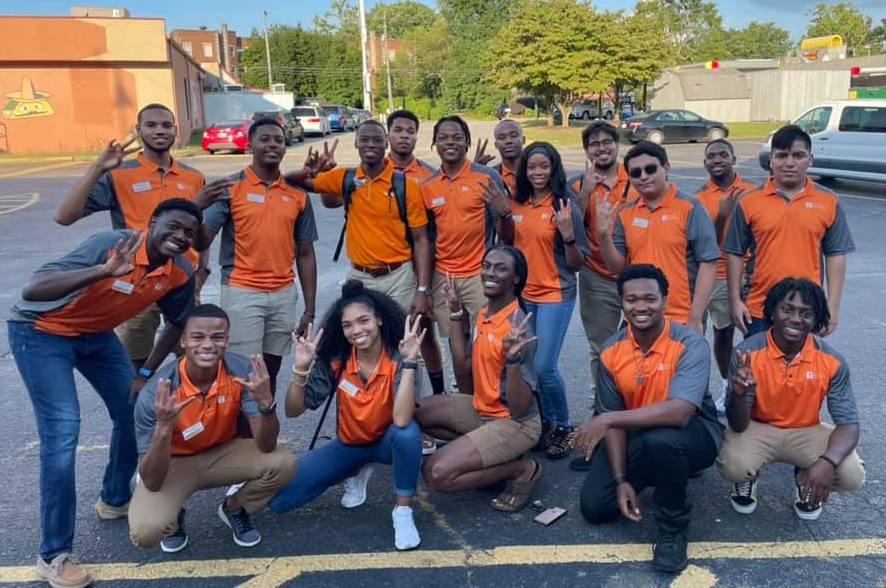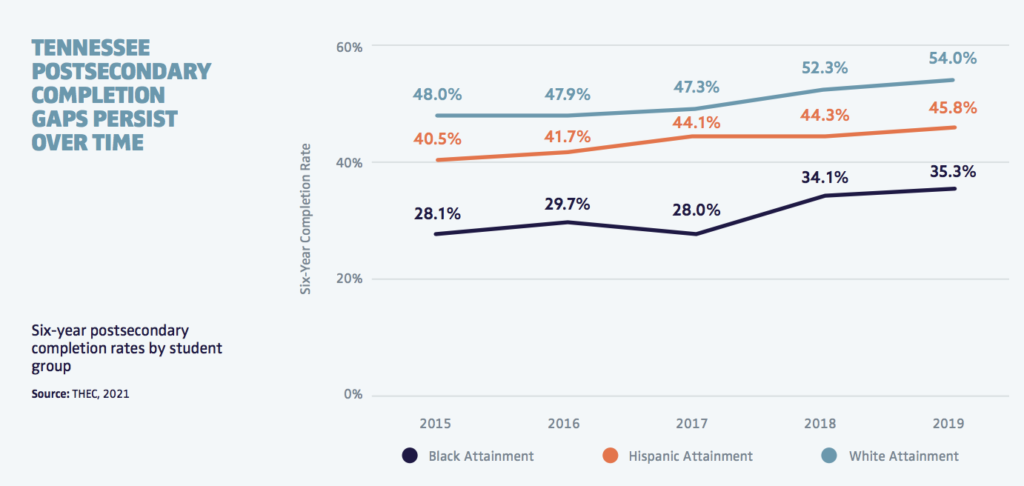
While college attainment rates have increased in Tennessee in recent years, our state still has staggering completion gaps across student groups. According to completion data from 2015 to 2019, six-year graduation rates in Tennessee for Black and Hispanic students trail rates of other student groups by 20 percentage points and 8 percentage points, respectively.

At the University of Tennessee, Knoxville, completion and persistence gaps for Black and Hispanic men are even wider. While the overall six-year graduation rate at UT Knoxville is 72.1 percent, it’s just 49.7 percent for Black men and 50.7 percent for Hispanic men, according to data provided by the university. Persistence gaps for these groups also are troubling. Of first-year students who started at UTK in the fall of 2020, 87.8 percent returned the following fall. But just 79.5 percent of Black men and 80.4 percent of Hispanic men in that cohort made the return.
Closing these gaps is critical for all students to lead successful lives of economic independence and for Tennessee to see continued economic growth. At UTK, a brand-new program — the UT Success Academy — targets support to Black and Latinx men and aims to help students of color feel a sense of belonging on campus.
At predominantly White institutions, it’s common for students of color to look around a classroom and see few — if any — other students who look like them. And they might not have any professors of color. UT Success Academy is aimed at supporting first-year Black and Latinx men and helping them to develop campus connections.
Program Director Aaron Dixon says the program offers students a space to feel comfortable and discuss their experiences with peers who can relate. By encouraging them to spend more time interacting with fellow students, meeting with professors, and participating in campus activities, the hope is to keep these students engaged and on track through graduation.
“This program is personal to me,” says Dixon. “From experience, I understand how important it is for our Black and Latinx men to connect with peers and learn more about their strengths during the transition to college.”
The program’s first cohort kicked off with 113 students who moved into their campus dorm early and participated in a Fall Kick-Off extended orientation. Each student is paired with a mentor and given access to monthly workshops, free tutoring, and study sessions. The program also addresses another significant barrier for many college students: finances. Students in the program receive a $2,000 scholarship each year for up to four years as long as they meet program commitments. The goal of the program is to recruit up to 200 students annually with an expectation of graduating close to 800 students of color at the end of four years.
As outlined in SCORE’s annual report, there are policy steps the state can take to close our college completion gaps. Programs like UT Success Academy are one more way for us to help students succeed.
Dr. Shawn Boyd is director of postsecondary program engagement at SCORE. SCORE Communications Manager Diane Hughes contributed to this post.
